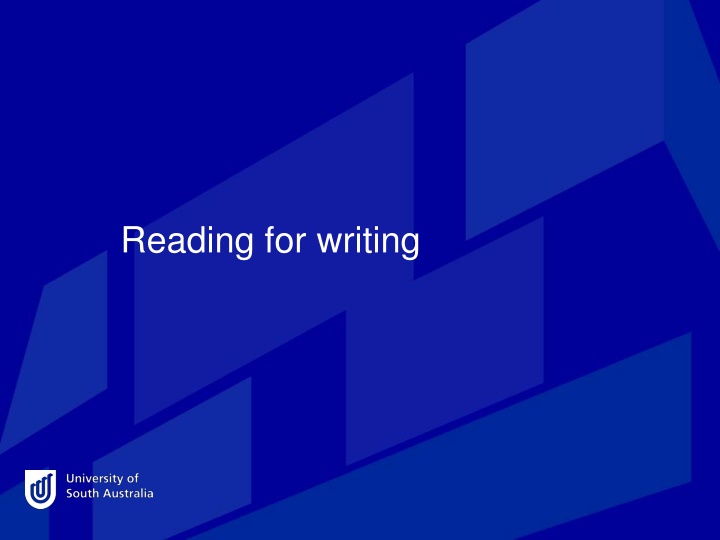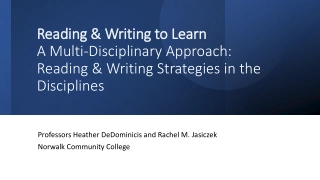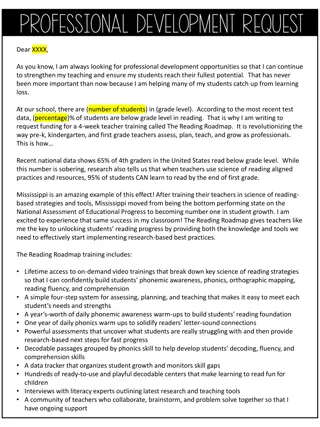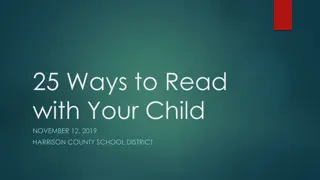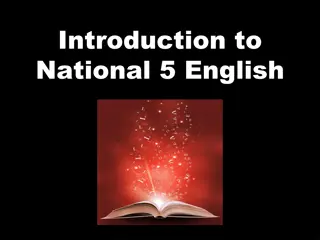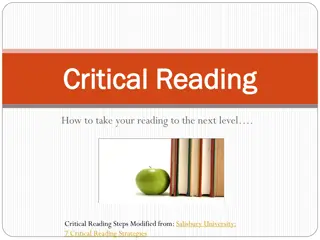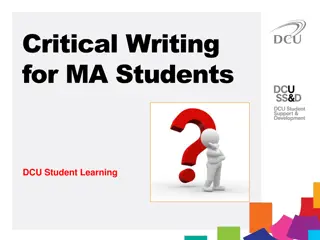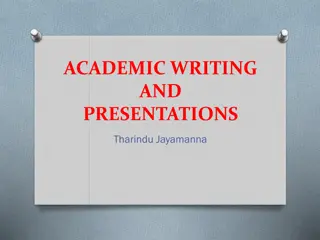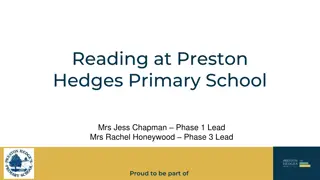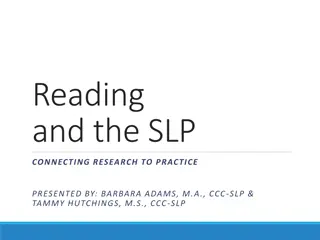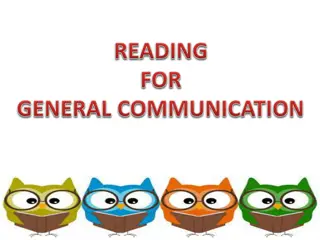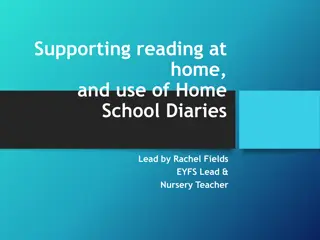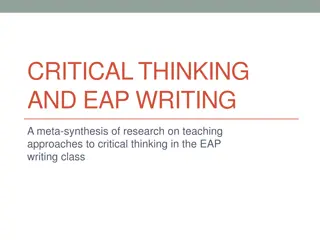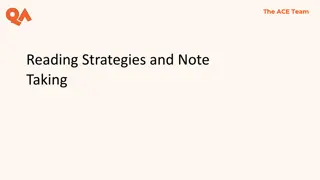Enhancing Critical Reading Skills for Academic Writing Success
Explore the expectations of tutors in academic reading, practice efficient reading techniques, and master critical reading for effective writing. Learn how to delve deeper into texts, evaluate information, and ask essential questions to refine your critical thinking abilities. Utilize the guidance provided to enhance your academic writing skills and excel in your assignments.
Download Presentation

Please find below an Image/Link to download the presentation.
The content on the website is provided AS IS for your information and personal use only. It may not be sold, licensed, or shared on other websites without obtaining consent from the author.If you encounter any issues during the download, it is possible that the publisher has removed the file from their server.
You are allowed to download the files provided on this website for personal or commercial use, subject to the condition that they are used lawfully. All files are the property of their respective owners.
The content on the website is provided AS IS for your information and personal use only. It may not be sold, licensed, or shared on other websites without obtaining consent from the author.
E N D
Presentation Transcript
Types of academic texts Textbooks Journals Reports Policy documents Websites 2
Your tutors expectations When you read for your assignments, you : explore current debates in your field; identify the issues; consider the different perspectives of researchers; distinguish evidence that would support your arguments; interpret and evaluate the information; and practise critical reading. 3
Critical reading for writing Critical Reading Critical Writing What do you have to do when you read critically? Think more deeply about your learning Understand, interpret and evaluate Apply the theories and concepts that you have learnt Compare and contrast different debates and discussions Assess what you read by identifying the author s purpose, credibility of information, relevance, currency, strengths, weaknesses, etc. 7
Questions to ask when reading critically What position is the writer presenting? What is the writer s argument? Have I encountered this argument before? Have I encountered a different argument somewhere else? Is the writer basing their arguments on a particular theory/approach? What is the writer s perspective? What evidence has the writer given to support their position? Is the evidence presented accurately? Is the evidence valid? Are the writer s claims reasonable? How does the writer s claims compare with others in the field? What is the writer s final point? Has the evidence been collected using appropriate methods? Do I agree with the position the writer is presenting? Why? 8 Cottrell, S. 2011, Critical thinking skills: developing effective analysis and argument , 2nd edn, Palgrave Macmillan. Basingstoke, Hampshire.
Transforming critical reading into writing Begin with the title to identify key debates or conflicts Be clear about your own perspective/stand on the issue/topic Consider how you will convince other people of your point of view (a line of reasoning, a set of reasons presented in a logical manner to support the conclusion) Identify and evaluate evidence to see if it supports your argument Engage actively in the debate with different points of views (read, reflect, question, evaluate, weigh up arguments and identify the strengths and weaknesses) Structure your argument in a clear and logical manner 9 Cottrell, S. 2011, Critical thinking skills: developing effective analysis and argument , 2nd edn, Palgrave Macmillan. Basingstoke, Hampshire.
Resources for reading https://lo.unisa.edu.au/mod/book/view.php?id=1144639&chapterid=169632 10 Cottrell, S. 2011, Critical thinking skills: developing effective analysis and argument , 2nd edn, Palgrave Macmillan. Basingstoke, Hampshire.
